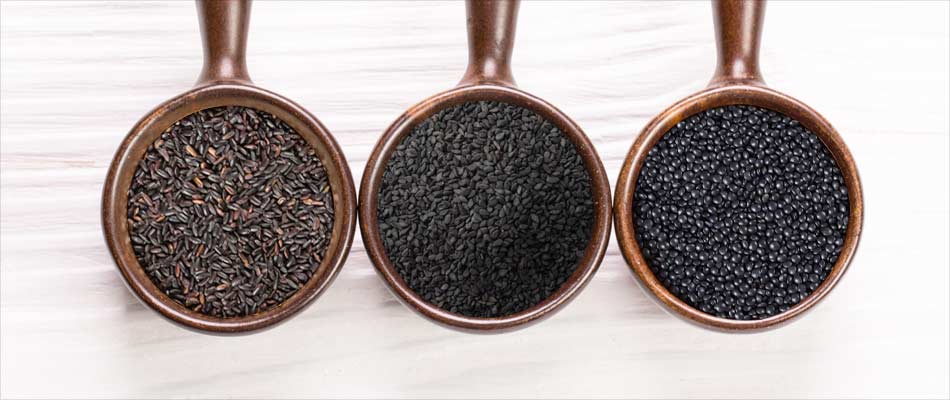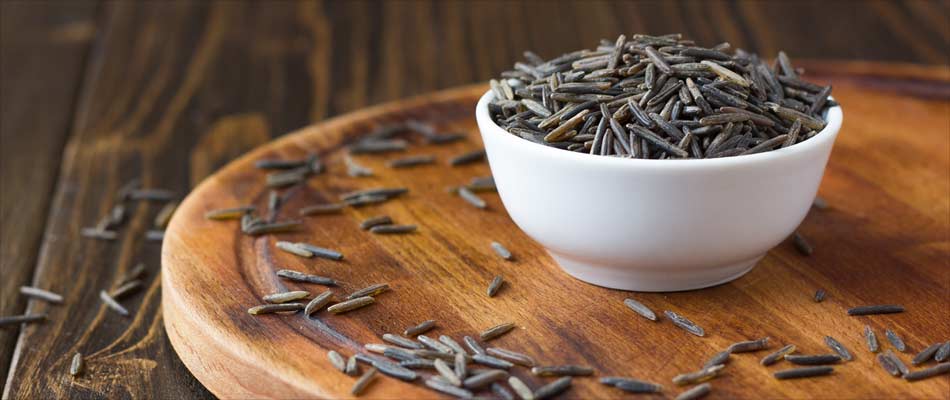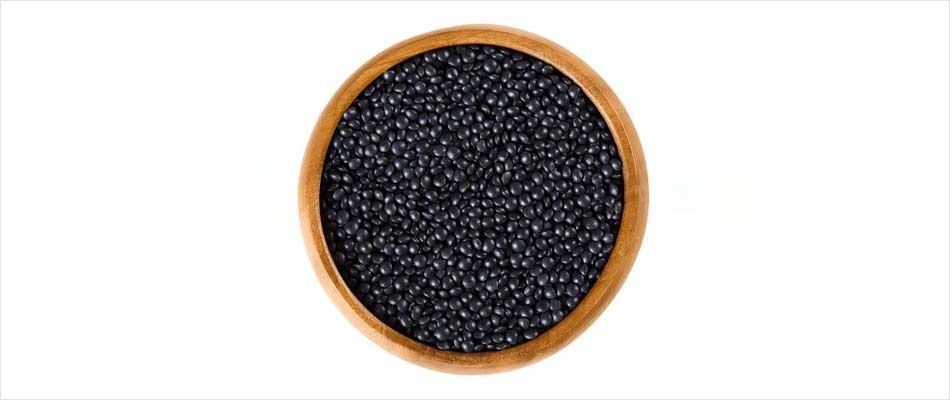Medindia » Multimedia » Slideshows » Top 7 Black Foods for Good Health

Colorful fruits and vegetables have been considered healthy due to the presence of vitamins, minerals, and antioxidants. Now, black is the new green! The culinary world is obsessed with black foods, that not only look exotic, but are also healthy and tasty. Foods like black rice, lentils, sesame seeds and blackberries are naturally black due to the presence of plant pigments called anthocyanins. Some black foods are prepared with a variety of ingredients like charcoal, food dye, and squid ink. Black foods offer an array of health benefits like improving digestion, detoxification, and heart health. Let us look at some interesting black foods and their health benefits!

Black rice is a rare variety of rice that gets its color from anthocyanins. In China, black rice is called the 'Forbidden Rice' as it was used to serve only royalty. Black rice contains anthocyanin pigment which has antioxidant and anti-inflammatory properties. For people with diabetes, black rice is a healthier alternative to white rice. The fiber present in black rice is helpful in preventing constipation, bloating and other digestive symptoms. It also contains high amounts of vitamin E, which prevents cell damage and boosts the immune system.

Black sesame seeds are a good source of essential nutrients like calcium, magnesium, vitamin B1 (thiamine) and dietary fiber. Black sesame seeds are called as tiny cholesterol fighters, as they contain two substances known as sesamin and sesamolin, which are the major lignans. Lignans are dietary fiber that has cholesterol-lowering properties. Black sesame seeds improve cardiovascular health, lower blood pressure, reduce inflammation, protect against colon cancer and osteoporosis.

Black garlic, also known as matured or aged garlic is produced after a long maturation process. Black garlic is popular for its unique flavor and therapeutic benefits. It contains high amounts of an antioxidant known as S-allyl-cysteine, which fights against oxidative stress, free radical damage, and cellular aging. Consuming black garlic increases HDL cholesterol levels and protects against cardiovascular diseases. Studies have shown that black garlic contains over 100 active compounds that could prevent or treat a number of health disorders.

Blackberries are a good source of vitamin A, which supports the digestive tract by maintaining healthy mucous membrane. It also contains vitamin C and K, and the trace mineral manganese that helps improve bone health. Vitamin C helps with collagen synthesis; vitamin K activates proteins for new bone mineral tissues and manganese activates enzymes for bone development. Owing to its antioxidant content, blackberries have cancer-fighting properties and can protect the cells from damage caused by the ultraviolet rays.

The black fungus, also known as wood ear or Judas ear is an edible mushroom and the color varies from dark brown to black. Black fungus is a good source of iron, calcium, vitamin K, D, B1 and B2. In Chinese medicine, black fungus is used to treat diseases of the stomach, liver, and lungs and also used to promote positive emotions. Black fungus helps alleviate dryness, promote blood circulation, prevent hemorrhoid and lower cholesterol levels. It contains germanium, which has anti-viral and anti-tumor effects.

Black lentils are high in protein, fiber and iron, and low in fat. It also contains essential amino acids like tryptophan, isoleucine and lysine and micronutrients like B vitamins, vitamin C, phosphorous, manganese, and magnesium. Black lentils contain phytochemicals called tannins that prevent the growth of cancer cells. The high fiber content of black lentils helps suppress appetite and aid in weight management. Studies have shown that eating one cup of black lentils can improve blood sugar levels, lower cholesterol and triglyceride levels.

Quinoa is a gluten-free food, which is rich in protein. As it is gluten-free, it can be consumed by people with glucose intolerance. Quinoa is a good source of minerals like magnesium, phosphorous, iron, zinc, copper, and potassium. It is also a good source of vitamins like riboflavin, folate and vitamin B6. Quinoa is a low-glycemic food, and can be consumed by people with diabetes as it does not spike the blood sugar level. Studies have shown that quinoa prevents the formation of gallstones by reducing the secretion of bile juice.